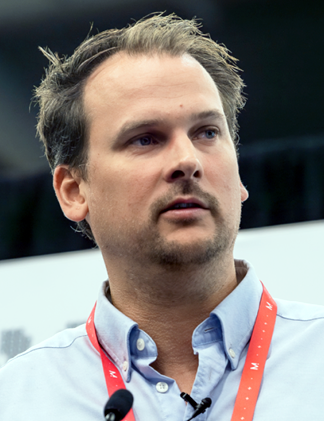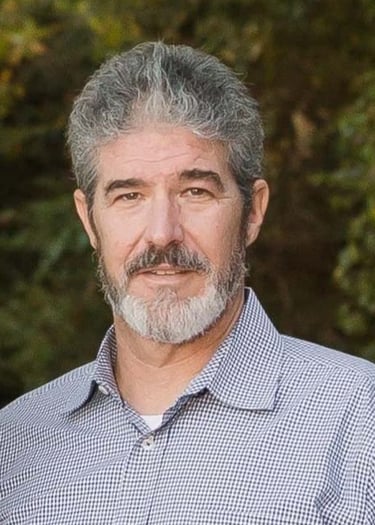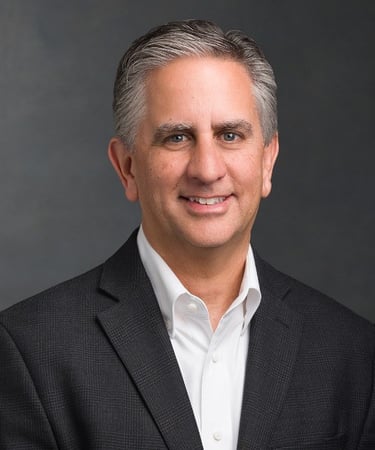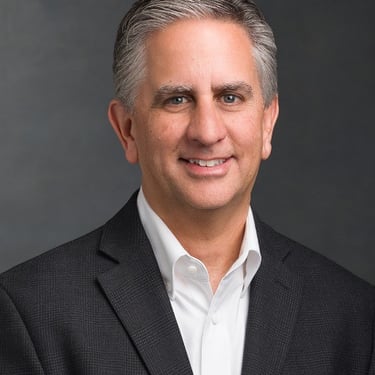Agenda
Note: Subject to change. Additional speaker and session information TBA
Tuesday, February 24, 2026
8:00 - 9:00 am Welcome Continental Breakfast and Registration
10:30 - 11:00 am Networking Coffee Break
12:00 - 1:00 pm Lunch Break
2:30 - 3:00 pm Networking Coffee Break
3:30 - 4:15 pm
Microgrids for EV Charging Beyond the Grid: Delivering Supplemental Power for Pepsi’s Queens Fleet
Shana Patadia
Head of Business Development
Synop
> profile
Additional panelist TBA
4:15 - 4:30 pm Break
4:30 - 5:00 pm
Advances in Smart Charging Management for Fleets: School Bus Case Studies
Highland Electric Fleets speaker TBA
5:00 - 6:30 pm
Networking Reception
Wednesday, February 25, 2026
8:00 - 9:00 am
Continental Breakfast and Registration
9:00 - 10:15 am
The Role of the Utility in the EV Charging Space: Energizing Sites, Planning for EV Loads, and Rate Design
Panelist and session information TBA
10:15 - 10:45 am Networking Coffee Break
12:15 - 1:15 pm Lunch Break
Additional panelist TBA
2:30 - 3:00 pm Networking Coffee Break
3:00 - 3:45 pm
Making Charging Ubiquitous With Mobile Robotics
Additional panelist TBA
Session Details
9:30 - 10:30 am | Tuesday, February 24
Grid Expansion 2.0: What FERC Order 1920 Means for EV Charging
The new FERC transmission planning rule is a watershed for integrating large-scale EV loads. This session explains how long-term scenario planning, regional cost-sharing, and improved state engagement will shape siting for high-power charging.
Why 20-year transmission planning horizons are critical for EVs.
How new cost-allocation models speed deployment.
Coordinating distribution upgrades with regional planning processes.


11:00 - 11:30 am | Tuesday, February 24
Charging the Future: Why Now is the Time to Double Down on EV Infrastructure—and How to Thrive
In an era of rapid EV adoption—projected at 25% of U.S. vehicles by 2030—charging infrastructure lags, with a 200,000-port shortage in 2025 alone. This presentation explores why stakeholders must act now, driven by declining battery costs, shifting policies, and grid strain, to avoid a bottleneck in the electrification revolution. Drawing on real-world insights, it uncovers the risks of delayed investment—lost revenue, stranded assets—and showcases bold strategies for scaling networks. From integrating renewables to leveraging local manufacturing, the session highlights actionable steps for operators, utilities, and municipalities. Attendees will gain a provocative perspective on turning urgency into opportunity, with a focus on resilient, customizable solutions that ensure reliability and growth. Expect a call to action: double down today to lead tomorrow’s mobility landscape.
Key Learning Points
The 200,000-port charger shortage in 2025 signals an urgent need for immediate investment to meet EV demand.
Policy uncertainty (e.g., federal incentive shifts) requires agile, locally supported manufacturing to mitigate risks.
Integrating renewable energy and storage with chargers can turn grid challenges into competitive advantages.
Customizable, high-uptime solutions are critical for scaling networks amidst reliability concerns.
Strategic partnerships with innovative manufacturers can accelerate deployment and ensure long-term success.


11:30 - 12:00 pm | Tuesday, February 24
Charging Smarter, Not Harder: How AI Expands EV Charging Capacity
AI-powered charging is transforming vehicle electrification. This presentation explores real-world applications of predictive charging algorithms that dynamically adapt to operational conditions. We’ll present two case studies demonstrating how data-driven smart charging systems can overcome timing and energy supply constraints while delivering cost savings.
The first case study explores the evolution of a solution developed with a customer operating one of the largest fleets of electric school buses on the West Coast while facing significant power constraints. Smart charging algorithms played a critical role in increasing charger utilization to meet the fleet’s operational needs.
In a second case study highlights a system that integrates vehicle telematics data with charger-level telemetry to implement a vehicle-centric smart charging strategy. By reliably identifying the vehicle connected to each Level 2 charger through real-time telematics data, we can associate charging activity with the vehicle itself, not the hardware port, providing accountability and performance insights.
Learning Points:
• AI can be applied throughout the ecosystem to improve operations
• Electric fleets can leverage intelligent charging to address power and time constraints
• Integrations between applications help control costs and improve fleet operations
• Automated charger maintenance is playing a larger role in fleet readiness


1:00 - 1:30 pm | Tuesday, February 24
Five Years of Nordic EV Charging: Lessons for U.S. CPOs
The Nordics are five years ahead in EV adoption, with one in three cars already electric in Denmark. Over this period, Monta has partnered with operators across Europe to deploy and scale networks under rapidly evolving regulatory, technical, and consumer landscapes. This session will share candid lessons learned from European CPOs that U.S. operators can apply immediately as they expand their networks.
Drawing from real-world case studies, Monta CEO Casper Rasmussen will outline how European operators balanced rapid growth with reliability. Attendees will leave with actionable insights into how to scale sustainably and avoid costly missteps.
Learning Points:
How Nordic CPOs scaled networks rapidly while maintaining reliability and high uptime
Why interoperability, roaming, and seamless payments proved decisive for EV driver adoption
Actionable insights for accelerating network rollout while avoiding common pitfalls


1:30 - 2:00 pm | Tuesday, February 24
Beyond the Charger: How Grid Conditions Impact EVSE Reliability
As Charge Point Operators (CPOs) scale their networks to meet growing EV demand, many are unknowingly exposed to a critical vulnerability: poor power quality from the grid. While most operational strategies focus on charger hardware, software platforms, and user experience, the electrical conditions feeding these systems are often overlooked. This blind spot can have significant consequences.
Power modules, contactors, and other electric vehicle supply equipment (EVSE) frequently fail in the field and are often written off as consumables. But in many cases, these failures are not due to manufacturing defects or wear and tear-they are symptoms of upstream grid issues like voltage sags, harmonics, phase imbalance, and transient events. Without visibility into these conditions, CPOs are left treating symptoms rather than addressing root causes.
This session will explore how real-time monitoring of grid-side conditions at the transformer level can help CPOs better understand the true drivers of charger downtime and component degradation. Key takeaways include:
Diagnosing recurring failures by identifying correlations between power quality anomalies and component breakdowns
Improving root cause analysis to reduce unnecessary replacements and truck rolls
Shifting from reactive to predictive maintenance using data-driven insights
Engaging utilities with evidence-based data to accelerate issue resolution and infrastructure upgrades
Supporting smarter site selection and load balancing for future deployments
Attendees will leave with a deeper understanding of how grid visibility can reduce operational costs, improve uptime, and support more resilient infrastructure planning. As the EV charging market matures, CPOs who treat power quality as a critical data stream-not just a utility concern-will be better positioned to scale reliably and sustainably.


2:00 - 2:30 pm | Tuesday, February 24
Software-defined Microgrid Controls for Seamless Integration of Solar, Storage and EV Charging
As distributed energy resources (DERs) proliferate and the grid faces growing demands for flexibility and resilience, the role of microgrids—particularly those integrated into Virtual Power Plants (VPPs)—has become essential. At the heart of this transformation lies software: the orchestrator that enables intelligence, adaptability, and coordination at scale. This session explores how advanced cloud-based IoT platforms are reshaping microgrid control architectures, enabling real-time data collection, edge-to-cloud coordination, predictive optimization, and dynamic participation in energy markets.
Drawing from field deployments and live operational data across diverse geographies, we will demonstrate how software-defined microgrid controls enable seamless integration of solar, storage, EV charging, and flexible loads, while maintaining reliability and meeting regulatory and economic objectives. We will also examine the shift from hardware-centric SCADA systems to API-driven architectures that support rapid innovation and deployment, specifically in multi family and commercial environments.
Whether managing a single facility or coordinating a fleet of microgrids within a VPP, software is no longer just an enabler—it is the core control layer. Attendees will leave with a deeper understanding of the architecture, use cases, and operational benefits of intelligent, cloud-native control platforms for the evolving energy landscape.


3:00 - 3:30 pm | Tuesday, February 24
From Mobility to Grid Asset: Integrating V2G into VPPs
As electric vehicle adoption accelerates, Vehicle-to-Grid (V2G) integration is becoming a powerful lever for flexibility and resilience within Virtual Power Plants (VPPs). This session explores how an aggregation of EVs provides mobility and can also serve as a distributed energy resource, providing grid services such as peak shaving. We will discuss the technical, economic, and regulatory enablers of V2G participation in VPPs, drawing on emerging pilot projects and real-world examples to highlight pathways toward scalable adoption.
Key Takeaways
Understand how V2G enhances VPP flexibility by turning EVs into dynamic grid assets
Explore business models that align EV owner incentives with system-level benefits
Learn about the interoperability and standards needed to scale V2G within VPPs
Gain insights into regulatory frameworks and market signals that support V2G participation


Additional panelists TBA
This session focuses on the cybersecurity challenges surrounding chargers, charging networks, and their integration with vehicles and the grid. Panelists will explore real-world vulnerabilities in communication protocols, payment systems, and networked management platforms, as well as the potential for cascading impacts across fleets and energy systems. The discussion will highlight current threat trends, regulatory expectations, and practical strategies for hardening charging assets against cyber intrusion -- ensuring trust, safety, and reliability in the EV charging ecosystem.
Key Topics:
- Common and emerging cyber attack vectors targeting EV chargers and charging network infrastructure
- How vulnerabilities in charger communications, authentication, and backend management systems can impact vehicles, fleets, and the wider grid
- Practical strategies and frameworks for securing EV charging assets, from hardware and firmware to network operations
- Evolving standards, regulations, and industry collaborations shaping the future of EV charging cybersecurity


In the high-demand world of autonomous rideshare, uptime and reliability are non-negotiable. This session will offer an in-depth look at how peak operational efficiency was ensured for a leading autonomous electric vehicle rideshare provider across several of their U.S. sites. The lessons learned apply to all organizations that own and operate electric vehicles. By leaning into proactive service and preventative maintenance, exceptional charger performance was maintained for the sites in supporting unprecedented utilization levels consistently above 97% across locations. This empowered the leading autonomous rideshare provider to safely and efficiently use its electric vehicles — and led to significant learnings in operational success that organizations with an EV strategy must consider.
Key Takeaways and Learnings:
- Complex site and electrical requirements must be accommodated
- High utilization sites need stability and dedicated support
- A customizable and centralized approach to proactive service models is essential
- Collaboration ensures success


1:45 - 2:30 pm | Wednesday, February 26
Reliability in Practice: Achieving and Sustaining 97% Uptime
Additional panelist TBA
NEVI rules require 97% uptime, but sustained reliability is more than a metric. This session unpacks how states are auditing, how SLAs can be structured to meet targets, and how preventive maintenance and transparent data reporting make networks bankable.
Takeaways:
The official uptime calculation and what data must be collected
SLA design: response times, parts inventories, and remote fix rates
Preventive maintenance models that reduce downtime costs
How new state rules (like California) interact with federal NEVI requirements


3:00 - 3:45 pm | Wednesday, February 25
Making Charging Ubiquitous With Mobile Robotics
Additional panelist TBA
Can mobile robotics solve the problems of serving all the EVs when that's what everybody is driving? This session will look at the development of robots that will charge EVs wherever they happen to be parked, exploiting existing infrastructure rather than deploying fixed assets that serve only a few vehicles at a time and are hard to manage. Apart from making EVs easier to use, the vision is to power them with new colocated solar PV generation, using excess energy in V2G-capable EVs to power homes.
Takeaways:
- Why mobile charging makes sense, how it boosts EV adoption
- How EV power electronics can be leveraged for dual use
- Why small robots work
- How VPPs & V2G reduce EV costs
- Why using distributed solar and EVs as storage is a lot cheaper than trying to build out the power grid
Speaker Backgrounds
Michael Sheppard
Michael Sheppard is the Co-founder and CEO of Power Technology Research (PTR) Inc., a global market intelligence and consulting firm specializing in the power, energy, and e-mobility sectors. Based in Santa Clara, California, Michael leads PTR’s strategic growth, business development, and client advisory initiatives across the Americas. With over 15 years of experience in power and energy technology markets, he previously served as a lead consultant at IHS Markit, where he managed large-scale advisory engagements, developed competitive and financial models for the solar and transmission industries, and produced in-depth analyses on global energy trends. Michael is recognized for his expertise in market strategy, competitive benchmarking, and guiding clients through the evolving dynamics of the global energy transition.


Chief Executive Officer
PTR Inc.
Speaking In:
Michael Hagerty
Mr. Hagerty specializes in planning and regulatory matters related to the electric power system in an increasingly decarbonized future.
His expertise includes long-term generation and storage resource planning, transmission planning and development, and electrification of transportation and heating. Mr. Hagerty has experience working on matters related to electric vehicle adoption and system impact analysis; renewable resource, generation, and storage asset valuation; decarbonization policies; and transmission benefit-cost analysis.
He has assisted a wide range of stakeholders – including electric utilities, generation and transmission developers, state agencies and commissions, automakers, and regional transmission organizations (RTOs) – in understanding and evaluating strategic questions related to the clean energy transition. This has included planning the buildout of the transmission network, assessing the future generation resource mix, and analyzing the pace and impact of electric vehicle (EV) and heating electrification adoption. He has also forecasted scenarios for the deployment of EV charging infrastructure necessary to meet increasing demand and customer adoption of greenhouse gas-reducing technologies, such as electric heat pumps, energy efficiency, and rooftop solar.
Mr. Hagerty has submitted testimony to state and federal commissions related to generation resource additions to achieve decarbonization goals, electric vehicle infrastructure needs, transmission planning processes and benefits analysis, and electricity market design. For the US Department of Energy, he has reviewed and outlined major issues facing the country’s electric power infrastructure.
Prior to joining Brattle, Mr. Hagerty was a research assistant at the MIT Energy Initiative, an oil refinery process engineer at Honeywell, and a research chemist at GE Global Research.


Principal
The Brattle Group
Speaking In:
Julie Selker
Julia Selker is the Director of Policy and Strategy for Grid Strategies. In this role, she facilitates new business and coordinates the Future Power Markets Forum. Julia also serves as the Executive Director of the Working for Advanced Transmission Technologies (WATT) Coalition, leading policy advocacy and education on Grid Enhancing Technologies. She previously worked in communications for the Business Council for Sustainable Energy and technology startups, interned with Congressman Peter DeFazio focused on energy and climate policy, and worked on the launch of Monterey Bay Community Power through the public relations agency Miller Maxfield, Inc. She has a bachelor’s degree in physics from Reed College.


Speaking In:
Joey Berg
Joey Berg is the CEO of EnergiSpot, a U.S.-based electric vehicle supply equipment (EVSE) venture formed in partnership with Taiwan’s eTreego Co., Ltd.. Having begun his career in the U.S. Marine Corps and subsequently held leadership roles in operations, distribution and logistics at companies such as Amazon, Target Corporation, Tesla, Inc. and Pattern, Berg joined EnergiSpot in 2024 to steer its expansion. EnergiSpot is building manufacturing and operations capacity in Utah and beyond, developing EV charging solutions for land, sea and air applications under the goal of enabling widespread electrification.


Chief Executive Officer
EnergiSpot
Speaking In:
Russell Schmidt
Russell Schmidt is Vice President of Digital Products at InCharge Energy, where he leads the Product Management, Data Science, and User Experience teams. InCharge’s Digital Products team develops software solutions that support electric vehicle charger maintenance, energy management, and commercial EV fleet operations with the InControlTM️ Charger Maintenance & Management System (CMMS). His professional background includes product management at EVgo, where he led the development of EVgo’s driver applications for iOS and Android, and at AT&T, where he directed the development of a news aggregator and companion mobile application. He holds a bachelor’s degree in economics from Harvard University and a Master of Science in Design, Business, and Technology from the University of Southern California’s Iovine and Young Academy.


Vice President of Digital Products
InCharge Energy
Speaking In:
Casper Rasmussen
Casper Rasmussen is a seasoned tech entrepreneur and the CEO & Co‑founder of Monta, the leading platform powering EV charging operations across Europe and the U.S. Prior to Monta, he served as CTO at Monstar Lab Group and co‑founded multiple startups that were acquired or went public. As a serial founder, Casper has raised over €130 million in funding since launching Monta in 2020, scaling the company to serve hundreds of thousands of charge points. He brings deep technical expertise and a visionary mindset to solving the complex challenges of EV infrastructure at scale. As a recognized thought leader in energy-tech and digital platforms, he frequently speaks on topics such as interoperability, charge point monetization, and the role of AI in e-mobility.


CEO and Co-Founder
Monta
Speaking In:
Daniel Engelman
Daniel Engelman is Vice President of Business Development for the EV market at Ubicquia, where he helps Charge Point Operators and municipalities improve charger reliability through real-time grid visibility and edge analytics. A longtime leader in EV infrastructure and smart city innovation, Daniel has spent over 20 years launching and scaling technology programs across engineering, operations, and business development.
Before joining Ubicquia, he served as VP of Reliability at ChargerHelp!, where he led the development of a telemetry-driven platform to improve EVSE uptime. Daniel is a frequent speaker on EV reliability, power quality, and utility-CPO collaboration.


Vice President
Ubicquia
Speaking In:
Alexander Stratmoen
Alexander Stratmoen is the Co-Founder and CEO of Voltra, a Mountain View-based startup developing next-generation grid infrastructure to support the electrified economy. A University of Waterloo Computer Engineering graduate, Alexander brings experience across data engineering, systems software, and early-stage venture investing — having worked with Theory Ventures, NCR, and Cosine Networks, where he co-founded a network virtualization platform. In addition to leading Voltra, he helps build technical and founder communities through Socratica, reflecting his passion for scalable energy systems, distributed computing, and the intersection of hardware and venture innovation.


Chief Executive Officer
Voltra
Speaking In:
Wayne Morrison
Wayne Morrison is Principal of Emerging Technology at Reliant, an NRG company, with responsibility for overseeing new residential technology. NRG Consumer’s home energy business, which includes Reliant, serves nearly 3 million customers in Texas. With 40+ years electrical industry experience in both the regulated and deregulated market, Wayne is passionate about the changing electricity landscape and how Reliant is leading the future of energy for consumers.
Wayne evaluates, implements and develops emerging energy products and services for customers, including home automation and energy storage technologies. He manages the Reliant Smart Home in Houston, Texas that serves as the company’s real-world research and development hub, where he provides educational sessions on new technologies available in the market.
Wayne’s career started in distribution engineering. He has held positions coordinating electric service for residential, commercial and industrial customers and has managed several energy efficiency programs.
Wayne earned his Bachelor of Science degree in Electrical Technology from the University of Houston. He is licensed by the Texas Real Estate Commission for instruction of agents on new technologies.


Principal – Emerging Technologies
Reliant
Speaking In:
Stephen Bedford
Stephen Bedford is a seasoned Renewable Energy Specialist and Master Electrician at NRG Energy with over two decades of experience spanning alternative energy innovation, smart home technologies, and electrical systems design. His career includes leadership and engineering roles at Reliant Energy, CBRE, JLL, and as President of Bedford Electric & Design, Inc., where he managed critical facilities operations and electrical infrastructure projects across commercial and industrial sectors. Stephen’s expertise centers on renewable power systems, product testing, and operational efficiency—driving innovation in energy reliability and sustainability.


Renewable Energy Specialist
NRG Energy
Speaking In:
Bill Ferro
Bill Ferro is the Co-Founder and CTO of Paren and Founder of EVSession, where he leads efforts to improve the reliability, transparency, and data accessibility of EV charging infrastructure across the U.S. With a background spanning over two decades in enterprise software leadership, including senior roles at IBM directing global engineering and payments teams that supported major financial systems such as the U.S. Federal Reserve, Bill brings deep technical and organizational expertise to the clean energy transition. Now focused on mission-driven climate initiatives, he is passionate about advancing electrification through data-driven insights that empower fleet managers, governments, and charging networks to build a more reliable and equitable electric mobility ecosystem. Bill is a graduate of Boston University with a degree in Computer Science.


Speaking In:
Kevin Cameron
Kevin Cameron is an analog and mixed-signal design expert with deep experience at the intersection of hardware, software, and AI. As President of Prezent Energy and founder of Cameron EDA, he focuses on advancing electronic design automation (EDA) through artificial intelligence and parallel simulation methodologies, applying decades of engineering expertise to next-generation energy and semiconductor systems. Kevin’s background spans power electronics, mixed-signal simulation, and verification methodology, with contributions to the Verilog-AMS and SystemVerilog standards that underpin modern chip design. His work integrates insights from analog circuit behavior, neural networks, and high-performance computing to accelerate design and verification workflows. Kevin is a graduate of The University of Edinburgh with a B.Sc. (Hons) in Electronic and Electrical Engineering.


President
Prezent Energy
Speaking In:
Virginia Hewitt
Virginia Hewitt is a clean transportation leader dedicated to advancing large-scale electric vehicle adoption through innovative service and support solutions. As Senior Director of Enterprise Accounts at InCharge Energy, she helps organizations deploy and manage EV charging infrastructure at scale, building lasting partnerships that enable the transition to a cleaner and more efficient transportation ecosystem.
With more than a decade of experience spanning EV infrastructure, energy technology, and strategic partnerships, Virginia has played key roles in shaping the market — from helping establish Greenlots’ (now Shell Recharge) fleet charging business to driving business development at Voltera, where she supported the creation of fit-for-purpose charging facilities for commercial fleets. Known for her consultative and collaborative approach, she excels at aligning technical, operational, and financial goals to deliver scalable, high-impact solutions. Virginia holds an MBA in Strategy and Leadership from the UNC Kenan-Flagler Business School and a B.A. in Environmental Science and Policy from Duke University.
Senior Director of Enterprise Accounts
InCharge Energy
Speaking In:
Cameron Mott
Cameron Mott is the Cyber Physical Systems Section Manager at Southwest Research Institute (SwRI) in San Antonio, Texas, where he leads multidisciplinary teams advancing cybersecurity for automotive, defense, and critical infrastructure systems. With over 15 years of experience spanning embedded systems, robotics, and secure software engineering, Cameron has been instrumental in pioneering research on EV charging vulnerabilities, over-the-air update security, and post-quantum cryptography for embedded devices. His work bridges the gap between research and real-world implementation, helping clients across commercial and government sectors strengthen resilience against evolving cyber-physical threats. Cameron holds a Master’s degree in Computer Science from New Mexico State University.
Cyber Physical Systems Section Manager
Southwest Research Institute
Speaking In:
Contact Us
Program Manager
Daniel Coran
Editor, SGO
info@smartgridobserver.com
+1-815-310-3343
www.smartgridobserver.com
Copyright 2025 Smart Grid Observer. All rights reserved




















